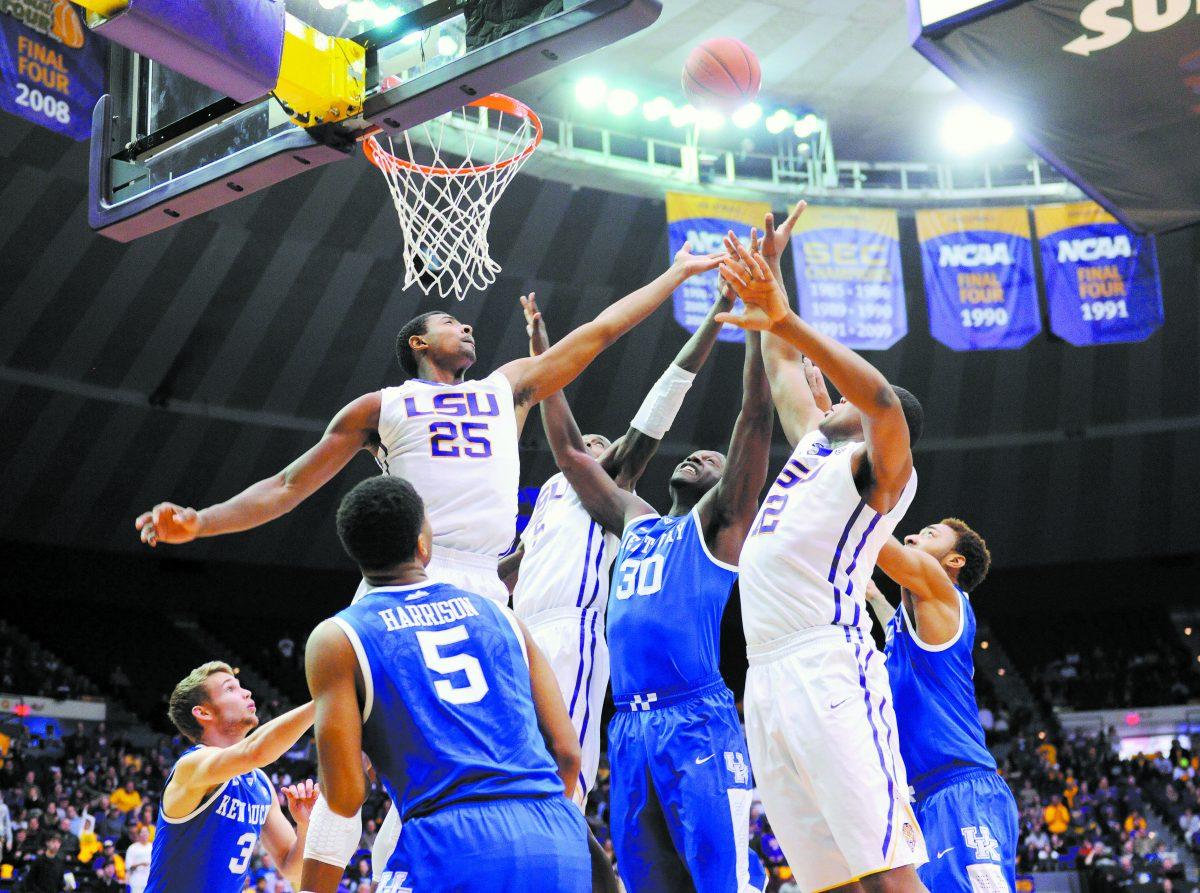The term “student-athlete” in NCAA football and basketball is a farce.
Times have changed. Gone are the days when professional athletes had to work second jobs during the offseason to support their families, replaced by lavish lifestyles supplied by multi-million dollar contracts.
Multi-million dollar contracts often earned during the pressure cooker of the NCAA tournament.
Look no further than the final played Monday night between Kentucky and Connecticut. Both teams have become the poster children for the decreasing importance of academics to athletes competing in major money making sports.
Kentucky is led by the king of shady college dealings, John Calipari, and a starting lineup composed solely of freshmen, with another four occupying some role on the team.
And the only bigger upset than a Wildcat squad that struggled with consistency during the season making the final would be any of those starting freshmen returning to play another season of college basketball.
What’s the point of going to English 1001 if you could be making millions playing in the NBA in six months?
Whether Kentucky wins or not, Calipari’s system of turning colleges into NBA training camps works. And the rule Calipari exploits to turn his teams into powerhouses is just as asinine.
But for those who cheered against Kentucky purely because of that reason, Connecticut is no knight in shining armor coming to clean up college basketball’s image.
The Huskies are the same team that was disqualified from postseason competition last season because of academic failings.
With the NCAA’s introduction of the Academic Progress Rating “cracking down” on teams, UConn failed to live up to the lax standards set.
According to an article in the Hartford Courant, UConn was banned after falling below the required APR rate and graduating 8 percent of the students who entered the basketball program, while the national average was 74 percent.
Eight percent. Couple that with the illegal recruitment of Nate Miles, which led to a three-game suspension of then-coach John Calhoun, and you can tell the Huskies were really striving to foster a student-first atmosphere.
And I’m sure the perfect APR score of 1,000 achieved by UConn for the 2012-13 season after the ban was announced was achieved by nothing more than hard work by its players, right.
But the NCAA isn’t guilt-free, either.
It doesn’t really care about students receiving improper benefits.
President Mark Emmert recently voiced his disapproval of the recent move for college players to unionize — shocker — but the institution chooses money over putting players in good playing environment every March.
Rather than playing basketball games in stadiums built for basketball, they convert monstrous NFL stadiums into basketball courts. Ask any basketball player about the games in those environments, and the first thing they’ll say is the depth created by the stadium throws off their shooting.
It sure does make their schools a lot of money, though, so who cares about the quality of play?
The NCAA can’t have its cake and eat it too. It can’t expect its student-athletes to care about the academic part of the equation if the institution itself is only in it to make money.
It’s one or the other, and it’s time to choose.
Trey Labat is a 21-year-old history senior from Mandeville, La.
Opinion: ‘Student-athlete’ title a joke
By Trey Labat
April 7, 2014
LSU freshman forward Jordan Mickey (25) and his teammates reach for the ball amongst Kentucky defenders Tuesday, Jan. 28, 2014 during the Tigers’ 87-82 victory against Wildcats.
More to Discover


